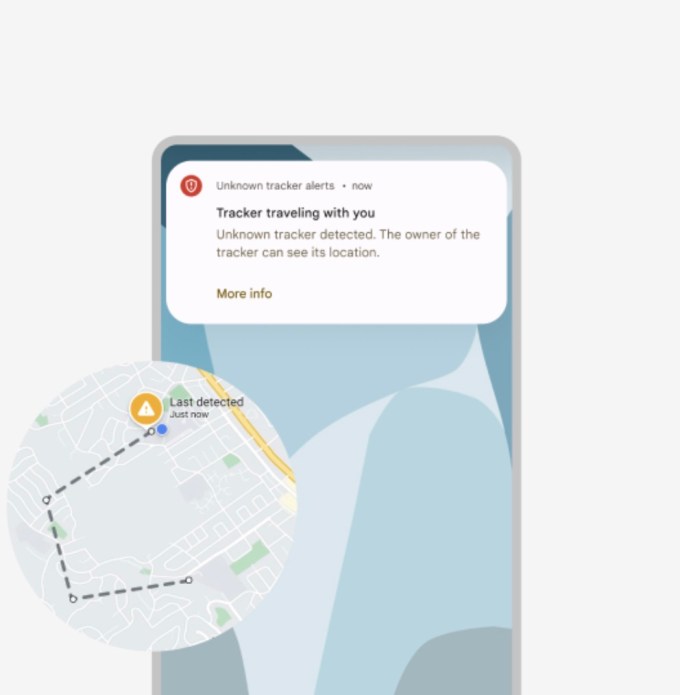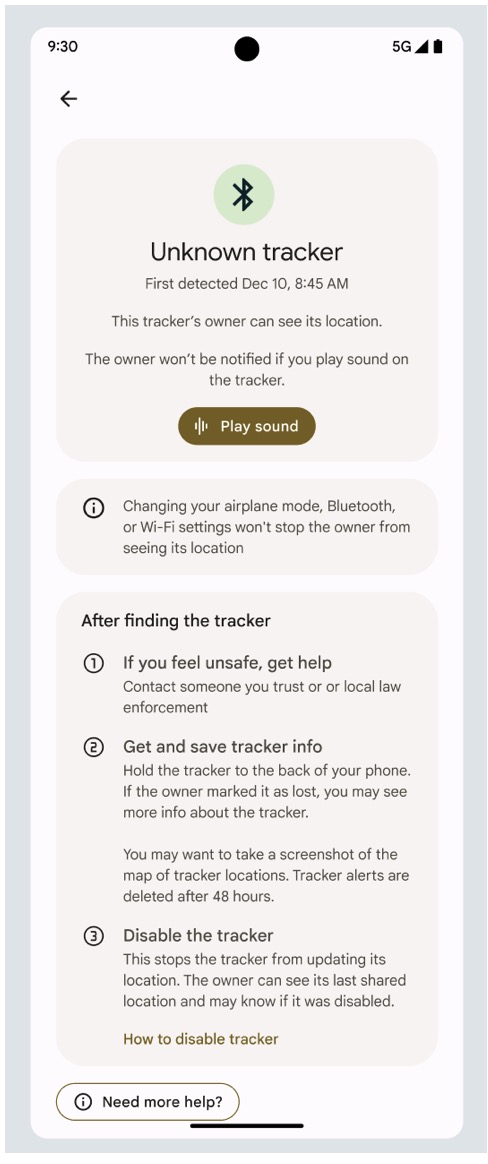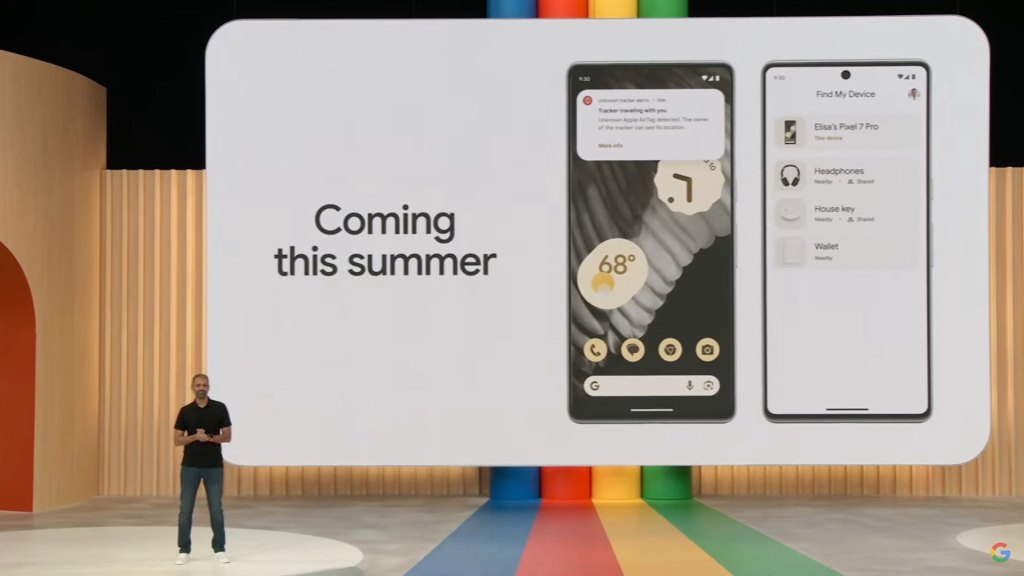Google today will begin to roll out a new safety feature, unknown tracker alerts, first announced at its developer event Google I/O this spring. The feature will allow Android users to be alerted automatically if an unknown Bluetooth device is traveling with them — a sign that could point to the possibility that someone is stalking them using an Apple AirTag or other Bluetooth tracking device. Users will also be able to manually scan for trackers with their Android device and be guided through tips on what to do next if a tracking device is found.
The issues with Bluetooth tracking came to a head as numerous reports emerged that people had begun to use AirTags for stalking and other illegal activities, like tracking cars for a planned theft. In February 2022, Apple said it would work to address the problems created with the new devices by adding new privacy warnings and alerts, and warned would-be stalkers it was actively working with law enforcement on the AirTag-related requests it receives.
However, Apple’s changes to AirTag at the time didn’t benefit Android users.
This May, however, Apple and Google jointly announced their intention to draft an industry-wide specification focused on how users could be alerted to unwanted tracking from Bluetooth devices. The spec is expected to be finalized by the end of the year.
Apple and Google team up on industry spec to make Bluetooth tracking devices, like AirTag, safer
As a result of the increased cooperation on user safety, Google said at I/O in May it would introduce a series of improvements to its own Find My Device network as well as proactive alerts about trackers traveling with you, which would include support for Apple’s AirTag and other devices. We understand this is a custom implementation to protect Android users, ahead of the finalized joint spec. Apple, however, will wait to implement the joint spec but will not roll out its own custom implementation in the meantime.
As this new alerts feature now rolls out, Android users will receive a notification on their device if an unknown tracker is separated from its owner and is determined to be with you. Users will then be able to tap on the notification to view a map of where the tracker was seen traveling with you.
You’ll also be able to tap on “Play Sound” to have the tracker make a noise, allowing you to locate the device.

If the device is found, users can bring it near the back of their phone to get more information. Some devices will share their serial number or additional information about the owner, like the last four digits of their phone number when held near the phone.
You’ll also be presented with tips on how to disable the Bluetooth device completely so the owner can no longer track you and receive future updates from the tracker.
In addition, another feature will allow users to manually scan their surroundings if they’re worried a Bluetooth tracker may be nearby. This manual scan can be kicked off by visiting Android’s Settings, then “Safety & Emergency” and then choosing the option “Unknown tracker alerts” and tapping on the “Scan Now” button. The device will take about 10 seconds to complete the manual scan and will provide tips on what to do next if a tracker is found. This way, users don’t have to wait for an automatic alert.

Also announced at I/O 2023, Google said it would update its Find My Device network to help users locate other missing belongings, like headphones, phones and everyday items, like luggage and keys, which can be located by third-party Bluetooth tracker tags. It explained users would be able to locate devices by ringing them or viewing their location on a map — even if they’re offline, adding that it would support trackers from Tile, Chipolo and Pebblebee, as well as audio devices like Pixel Buds and headphones from Sony and JBL.
Today, however, Google says this update is on hold.
The decision was made to wait to roll out these updates because Google is now working in partnership with Apple to finalize the joint unwanted tracker alert specification by year-end.
“At this time we’ve made the decision to hold the rollout of the Find My Device network until Apple has implemented protections for iOS,” Google says.
Google updates Find My Device network, adds new feature to warn about unknown AirTags with you































Comment